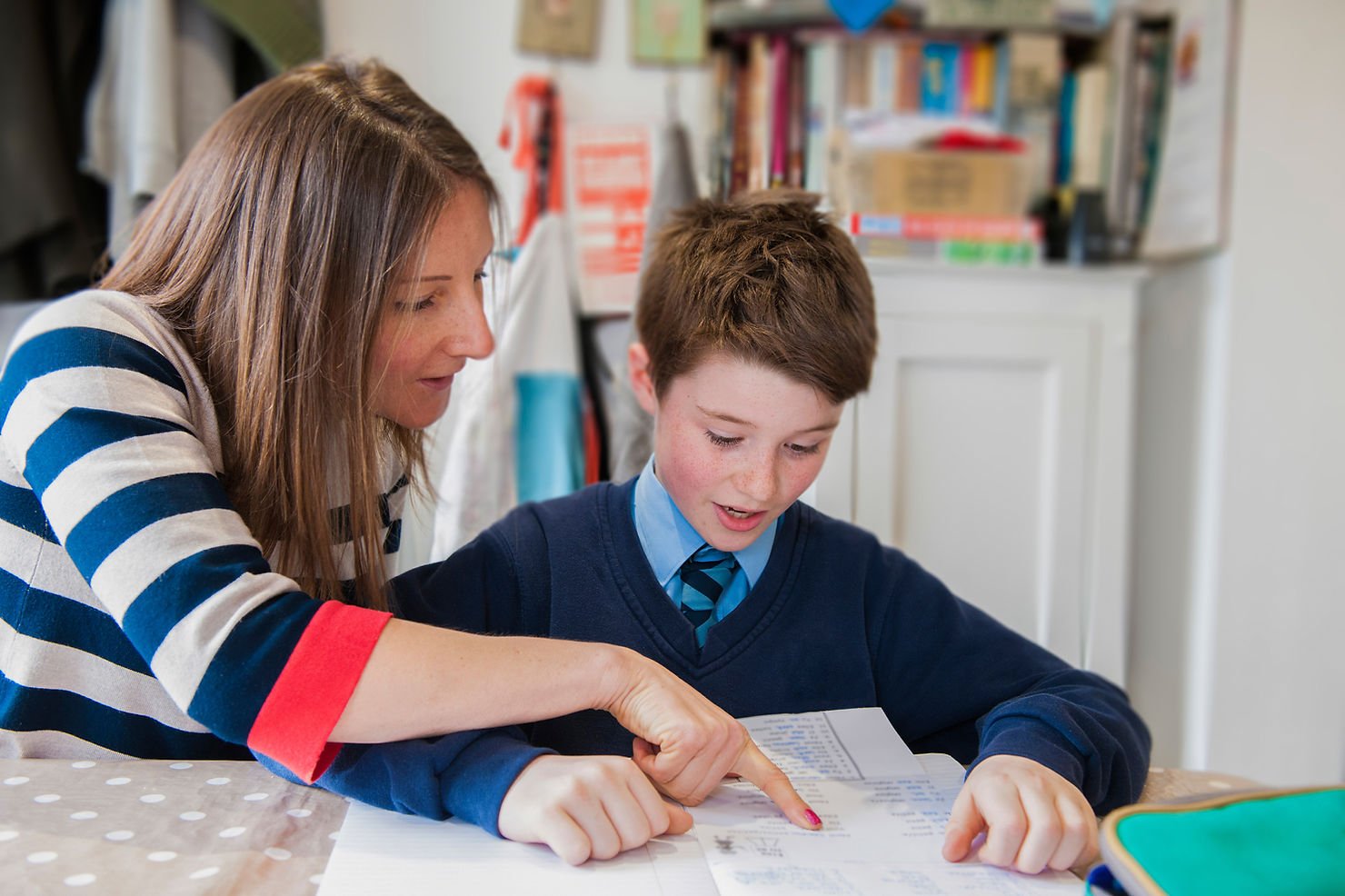Recognising ADHD Symptoms in Children: A Parent's Essential Guide
Attention-Deficit/Hyperactivity Disorder (ADHD) is a common neurodevelopmental condition that affects children across the globe. While many parents may notice certain behaviours in their children, distinguishing between typical childhood energy and ADHD can be challenging. Early identification and intervention are key to helping children with ADHD unlock their full potential. Here, we will guide you through the essential signs of ADHD in children, how to differentiate them from normal behaviour, and the steps you can take if you suspect your child may have ADHD.
What is ADHD?
ADHD is a neurodevelopmental disorder characterised by patterns of inattention, hyperactivity, and impulsivity that are more severe and frequent than typically observed in children of the same age. It can affect a child's performance at school, their social interactions, and their overall well-being. ADHD is generally divided into three types:
Predominantly Inattentive Presentation: Difficulty sustaining attention, following through on tasks, and organising activities.
Predominantly Hyperactive-Impulsive Presentation: Excessive fidgeting, restlessness, difficulty waiting, and impulsivity.
Combined Presentation: A mix of inattentive and hyperactive-impulsive symptoms.
Signs of ADHD in Children
Identifying ADHD can be tricky because its symptoms often overlap with normal childhood behaviours. However, if you notice these behaviours consistently over a period of six months or more, it may be worth considering an evaluation.
1. Inattention
Children with ADHD may struggle with sustaining attention in tasks or play activities. Some signs of inattention include:
Difficulty focusing on tasks: Whether it’s homework, a game, or a conversation, the child may have trouble keeping their attention on a single activity for an extended period. They might start tasks but not finish them or become easily distracted by their surroundings.
Careless mistakes: Children with ADHD often rush through tasks and pay less attention to detail, leading to mistakes in schoolwork or chores that seem careless.
Avoidance of tasks requiring sustained effort: Activities that require prolonged mental effort, such as school assignments, may be particularly challenging for a child with ADHD. They may avoid or express dislike for these tasks.
Losing items: A child with ADHD might frequently lose things necessary for tasks and activities, like school supplies, books, or toys.
Forgetfulness in daily activities: The child may forget to do everyday tasks like brushing teeth, completing homework, or bringing necessary items to school.
2. Hyperactivity
Hyperactivity is another core symptom of ADHD. Children with hyperactivity may seem to have an endless amount of energy, often moving when it's inappropriate or talking excessively. Signs of hyperactivity include:
Constant fidgeting: Children with ADHD often can't sit still. They may fidget with their hands or feet, squirm in their seat, or tap their fingers.
Inability to stay seated: In situations where sitting is expected, such as in the classroom or at the dinner table, a child with ADHD might frequently get up and move around.
Running or climbing inappropriately: Younger children with ADHD may run or climb in situations where it’s inappropriate, like indoors or in a classroom setting.
Difficulty playing quietly: Even during activities that are meant to be calm or quiet, such as reading or playing with toys, a hyperactive child may be excessively noisy or unable to engage in quiet play.
Talking excessively: A child with ADHD might talk more than other children their age, often interrupting others or speaking out of turn.
3. Impulsivity
Impulsivity in children with ADHD can manifest as acting without thinking, having difficulty with self-control, and struggling to wait their turn. Some indicators of impulsivity include:
Interrupting others: A child with ADHD may frequently interrupt conversations, games, or activities, often without realising they are doing so.
Difficulty waiting their turn: Whether in a game or in line, waiting can be particularly challenging for a child with ADHD. They may become frustrated or act out while waiting.
Blurting out answers: In a classroom setting, children with ADHD might blurt out answers to questions before being called on or before the question has been fully asked.
Taking unnecessary risks: Impulsive children may engage in risky activities without considering the potential consequences, such as climbing high structures or running into the street.
How to Differentiate ADHD from Typical Childhood Behaviour
While many of the behaviours associated with ADHD are common in young children, the key difference is the consistency, duration, and intensity of these behaviours. Here are a few factors to consider:
Frequency and Persistence: ADHD symptoms are present more frequently and consistently than in other children of the same age. If your child’s behaviour has persisted for more than six months, it could be a sign of ADHD.
Impact on Daily Life: Children with ADHD often experience difficulties in multiple settings, such as at home, in school, and during social activities. These challenges may affect their academic performance, relationships, and self-esteem.
Age Appropriateness: It’s important to consider whether the behaviour is age-appropriate. For example, it’s common for preschoolers to have short attention spans, but if an older child is consistently struggling to focus, it might indicate ADHD.
Steps to Take if You Suspect ADHD
If you believe your child may have ADHD, it's essential to take the following steps:
Observe and Document: Keep a detailed record of your child’s behaviours, including when they occur, how often, and in what settings. This information will be valuable when discussing concerns with professionals.
Talk to Your Child's Teacher: Teachers can provide insights into your child’s behaviour in a structured environment, which can be crucial in identifying ADHD.
Consult a Doctor: Discuss your observations with your child’s doctor. They can perform an initial assessment and may refer you to a specialist, such as a child psychologist or psychiatrist, for a comprehensive evaluation.
Consult Learning DNA: Book a free consultation today here to get a 360 degree assessment booked for your child.
Seek a Professional Evaluation: A thorough assessment typically involves interviews, questionnaires, and possibly standardised tests to evaluate your child’s behaviour across different settings.
Consider a Multimodal Treatment Approach: If your child is diagnosed with ADHD, treatment often involves a combination of behavioural therapy, educational support, and sometimes medication. Working closely with your child’s healthcare providers can help create an effective treatment plan tailored to their needs.
What parents can expect from Learning DNA
Comprehensive Support: From holistic assessments (and diagnostic assessments), to therapeutic interventions and personalised tutoring sessions; we offer a wide range of services tailored to your child's specific needs.
Expert Guidance: Our team of experienced professionals is here to provide you with the support and guidance you need to help your child succeed. Whether you have questions about your child's (undiagnosed) learning difficulties or need advice on how to support them at home, we're here to help.
Regular Progress Updates: We believe in transparency and collaboration, which is why we provide regular progress updates to keep you informed of your child's development. We'll work closely with you to ensure that your child is making progress and receiving the support they need to succeed.
Unlock Your Child's Potential: With Learning DNA, you can feel confident knowing that your child is in good hands. Our personalised approach to learning focuses on unlocking your child's full potential, helping them thrive both academically and personally.
Spotting the signs of ADHD early can make a significant difference in your child’s development and overall quality of life. By understanding the symptoms and taking proactive steps, you can ensure your child receives the support they need to succeed. Remember, ADHD is a manageable condition, and with the right resources, children with ADHD can lead fulfilling, successful lives.
Give your child the support they need to succeed. Contact Learning DNA today to learn more about how we can help your child reach their full potential.
If you feel your child requires additional support in learning, you can book a FREE 15-minute consultation with us to chat further about your concerns.


